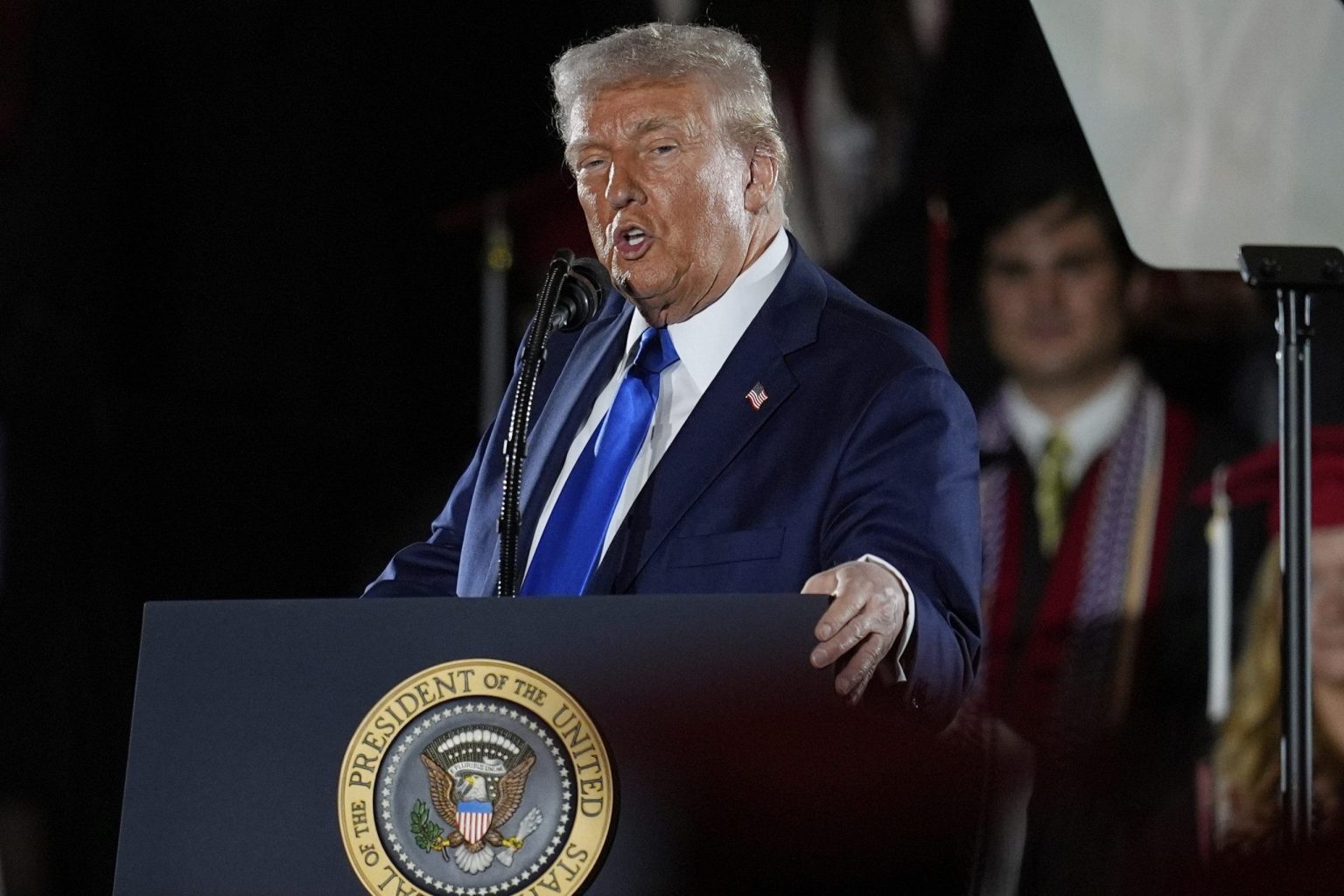In a recent commencement address at the University of Alabama on May 1, 2025, President Donald Trump criticized judicial actions that he claims hinder efforts to address illegal immigration. His remarks came on a day when a federal judge barred the Trump administration from utilizing the Alien Enemies Act to deport gang members who are undocumented immigrants. Trump’s comments highlight ongoing tensions between the executive branch and judiciary regarding immigration enforcement policies.
| Article Subheadings |
|---|
| 1) Presidential Remarks on Judicial Interference |
| 2) Legal Challenges to Deportation Efforts |
| 3) Evidence Against Alleged Gang Members |
| 4) Responses from the Administration |
| 5) Implications for Immigration Policy |
Presidential Remarks on Judicial Interference
During the commencement speech, President Trump emphatically expressed his frustrations regarding the judiciary’s role in immigration enforcement. He stated,
“As you’ve been reading, the courts are trying to stop me from doing the job that I was elected to do.”
This statement was a clear rebuke to judges he accused of meddling in presidential responsibilities. Trump argued that granting due process to individuals who entered the U.S. illegally undermines his administration’s authority and the will of voters, who elected him on a platform of stringent immigration reform.
Legal Challenges to Deportation Efforts
On the same day as Trump’s address, a federal judge made a significant ruling that affected his administration’s immigration strategy. The judge issued a permanent injunction against the use of the Alien Enemies Act (AEA) to deport undocumented gang members, a move that has sparked heated debate among lawmakers and legal experts. Critics argue that the AEA’s application in this context raises serious constitutional concerns regarding due process and the rights of individuals, regardless of their immigration status. The ruling has effectively put a halt to efforts that were intended to target violent gang members, thereby limiting the administration’s regulatory options.
Evidence Against Alleged Gang Members
Among the cases in question is that of Kilmar Abrego Garcia, who the Trump administration identified as a member of a gang involved in criminal activities. The president emphasized this case as part of his push to deport gang members, asserting that they pose threats to public safety. Despite the Trump administration’s claims, opposition has argued that Abrego Garcia was deported without sufficient evidence to substantiate gang affiliation. However, subsequent reports and accompanying body camera footage from Maryland policemen revealed his alleged involvement in human trafficking incidents dating back to 2022. The footage captures officers discussing their suspicions of Abrego Garcia’s activities, which further complicates the legal discourse surrounding his deportation.
Responses from the Administration
In response to the federal ruling, Vice President J.D. Vance asserted the administration’s commitment to challenging the decision. In a statement, he emphasized the need for the administration to take strong action to protect U.S. borders, asserting that the judiciary should not dictate immigration policy.
“The judge doesn’t make that determination, whether the Alien Enemies Act can be deployed,”
Vance remarked during an interview. He conveyed the administration’s belief that it’s the president who should ultimately have the authority to define and address instances of invasion and security threats. This point of view further cements the administration’s position that permits an aggressive approach to immigration enforcement, particularly against suspected criminals.
Implications for Immigration Policy
The current developments present significant implications for immigration policy in the United States. The ongoing legal battles pose challenges to the Trump administration’s hardline stance against illegal immigration and gang violence. With judicial interventions curbing their efforts, officials must navigate these complexities while maintaining their legislative objectives. This situation has ignited discussions across the political spectrum about the balance between security measures and civil rights, especially concerning undocumented immigrants. If the administration continues to face setbacks in court, it could prompt a reevaluation of their strategies regarding deportations and enforcement practices.
| No. | Key Points |
|---|---|
| 1 | President Trump criticized judicial interference in his immigration policies during a commencement address. |
| 2 | A federal judge has permanently barred the use of the Alien Enemies Act to deport alleged gang members. |
| 3 | Concerns around the legitimacy of deportation claims against individuals like Kilmar Abrego Garcia are intensifying. |
| 4 | Vice President J.D. Vance expressed intentions to appeal the federal ruling blocking deportations. |
| 5 | The ongoing legal battles have raised questions about the balance between immigration enforcement and civil liberties. |
Summary
The recent address by President Trump has spotlighted the escalating conflict between the executive branch and judiciary over immigration policy. As his administration faces legal hurdles in its efforts to deport undocumented gang members, significant questions arise regarding the enforcement of immigration laws and the protections afforded to individuals under due process. The implications of these legal challenges will ripple through the political landscape as policy makers contemplate how best to balance public safety with legal rights.
Frequently Asked Questions
Question: What is the Alien Enemies Act?
The Alien Enemies Act is a U.S. law that provides the government the authority to detain and deport male citizens of enemy nations during wartime. It has been invoked in various historical contexts but is currently under scrutiny regarding its applicability in immigration enforcement against gang members.
Question: How does due process relate to immigration cases?
Due process in immigration cases ensures that individuals are given fair treatment under the law, including the right to a hearing and the opportunity to contest deportation orders. It serves as a legal safeguard for those facing removal from the country.
Question: What are the administration’s goals regarding gang-related deportations?
The Trump administration aims to prioritize public safety by deporting gang members believed to be involved in criminal activities, thereby addressing concerns about violence and threats associated with organized crime. However, legal challenges are complicating these efforts.


